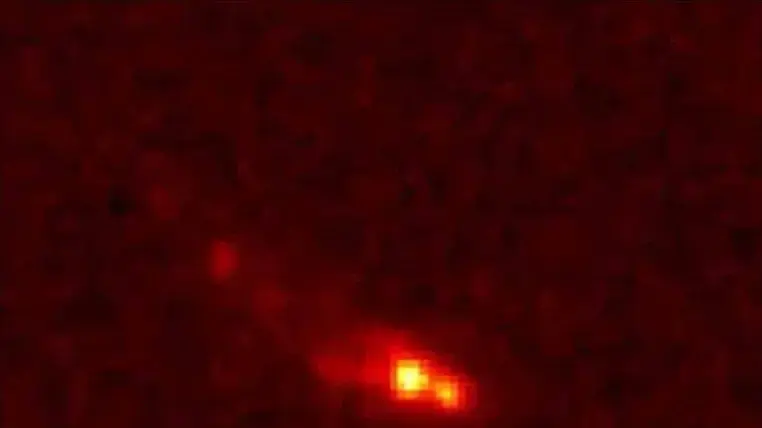Imagine a rocky desert, turning from beige to brown, in the far north of Greenland, where only reckless musk oxen dare to venture to graze on scattered vegetation.
Now imagine that two million years ago, at Cape Copenhagen, birches, cedars and poplars grew there and between these trees, reindeer, hares and lemmings frolicked and watched the geese fly away wild.
Modern man was not there to testify, and for good reason, he only appeared 300,000 years ago.
As for his primate ancestors, concentrated in Africa, they knew nothing of these lands.
However, we can say today with certainty that species like these lived well in these regions, thanks to an incredible discovery: DNA dating back 2 million years, the oldest ever found!
Some 41 microscopic samples hidden in quartz and clay, miraculously preserved in sediments.
Using cutting-edge technology, researchers, who detail their findings in the journal Nature on Wednesday, found the fragments were nearly a million years older than the previous record of DNA taken from a Siberian mammoth tooth , dating back 1.2 million years… only!
This time, a whole ancient ecosystem is revealed in a region that then had a much warmer climate of at least 10 degrees.
But of mammoth, it is also question, since pieces of DNA came to betray the passage in the boreal forest of yesteryear of a species of mastodon.
Until now, it was thought that no elephant ancestor lived at the time so far from their American cradle.
A long-term job
The sediments where the ancient samples were located accumulated for 20,000 years in the mouth of a fjord in the Arctic Ocean.
In this shallow bay, the deposit eventually reached 100 m in thickness.
The DNA was preserved by ice and permafrost (also called permafrost), permanently frozen ground until its discovery two million years later and its analysis by a seasoned team of 40 researchers working, between others, in Denmark, the United Kingdom and France.
A quest that required a lot of patience and perseverance.
"It's the longest adventure I've been involved in," says geneticist Eske Willerslev, 51, with a smile.
The search for DNA fragments, which began in the region in 2006, was not immediately successful.
“We failed and failed again”, continues the Dane, who admits that “we didn't really know what could be there”.
"You can imagine, but it's pure speculation," agrees his colleague Mikkel Winther Pedersen.
If their efforts ended up paying off, the team also did not know, at the start, if they could detach the DNA from the sediment, a delicate operation.
She was eventually able to compare each DNA fragment with vast libraries of DNA from living animals, plants and microorganisms.
It is an ecosystem of unsuspected richness which then gradually appeared to him.
Soon, the ancestors of humans?
These discoveries dramatically open up the field of possibilities.
Scientists now have a very old reference DNA and will be able to measure how it has evolved until today in ranges of species that still exist.
The climate of the time being similar to that which is expected, sooner or later, on Earth, the authors of the study hope that their results will be able to contribute to predicting the long-term environmental consequences of global warming.
By observing how species adapt to extreme changes, their work could help the most threatened to survive, using possible genetic modifications.
Because the current upheaval in the climate is so rapid that it naturally leaves them little time to evolve...
Finally, researchers are hopeful that the search for ancient DNA is no longer limited to cold environments.
According to them, it could be possible to extract clay from it on African sites.
And then, perhaps, to obtain new knowledge on very different species.
Like, for example, our ancestors?









